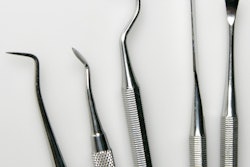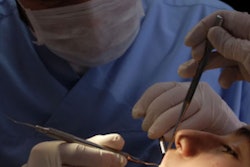Dear Hygiene Insider,
Nonsmokers who are exposed to secondhand tobacco smoke may see their risk of developing oral cancers increase by about 50%, according to a systematic review in Tobacco Control.
Researchers from the U.S., U.K., Spain, and Portugal conducted a meta-analysis of five studies that included approximately 7,000 people to analyze potential associations between secondhand smoke exposure and oral cancer risk. Individuals exposed to secondhand cigarette smoke had an increased risk of lip, mouth, and throat cancers.
Those who breathe in secondhand smoke for more than a decade may be twice as likely to develop oral cancer as those not exposed to smoke, the researchers reported. Read more in this edition's Insider Exclusive.
In other news, did you know that good oral hygiene may improve outcomes for patients with COVID-19? Medical imaging has helped show that SARS-CoV-2 infection could be accelerated through dental plaque and gum inflammation.
Also new in our Hygiene Community, a study in BMC Oral Health revealed that patients with dental fear likely have anxiety and touch their faces more often, which may lead to greater spread of the novel coronavirus at dental practices. Knowing the associations between anxiety disorders and physical behavior could help prevent the spread of SARS-CoV-2 and help clinicians develop effective interventions to improve the oral health of these patients.
Did you know that good dental health is better than antibiotics when it comes to preventing infective endocarditis? Evidence indicates that limited use of preventive antibiotics for dental procedures has not increased the number of cases of this heart infection. Limiting antibiotics has also helped fight antibiotic overuse in the dental patient population.
Necessity is the mother of invention, and that is exactly what drove periodontist Dr. Lara Ryan to invent the Perio Dome to offer her patients and team more protection during the pandemic. The aerosol hood is attached to a vacuum that captures aerosols and splatters that may contain airborne pathogens such as SARS-CoV-2.
Finally, a recent study revealed that cognitively healthy adults who have more harmful oral bacteria may be at greater risk of having the key Alzheimer's disease biomarker beta amyloid 42 in their cerebrospinal fluid. This is thought to be the first study to show a link between bacteria found at the gumline and the biomarker in older people with no signs of cognitive decline.




















